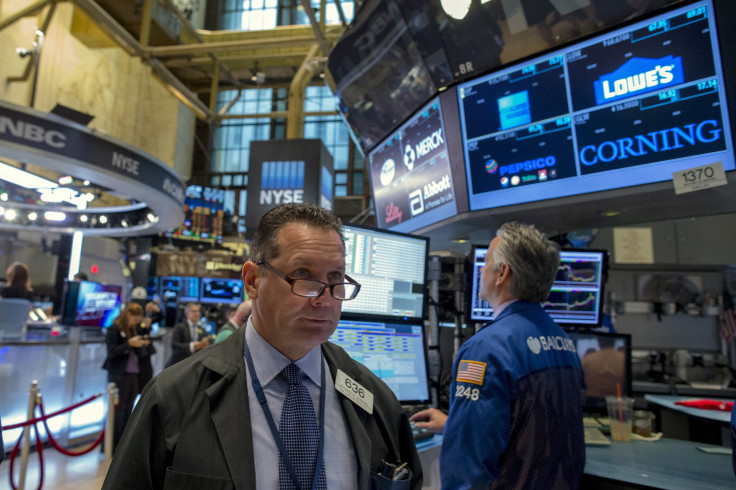Historic Plunge In Treasury Yield In Panic-Stricken Market May Signal Imminent Recession

KEY POINTS
- Treasury yields have sunk to all-time lows
- Traders expect Fed to cut interest rates again
- Investors buying up safe haven assets in a market gripped by panic
On Monday, the ten-year Treasury yield took a historic plunge, dropping 28.6% at 0.504% as of 1:35 p.m. EDT.
At one point, the yield was as low as 0.4%. Bond yields have cratered along with crude oil futures and global equity markets as spooked investors moved into safe-haven assets in a frenzy related to the worsening coronavirus spread.
Oil prices plummeted after Saudi Arabia and Russia could not agree upon production cuts.
The entire U.S. yield curve dropped below 1% -- for the first time in history – as yields on both the 10-year and 30-year bonds tumbled to record lows. The fact that investors were willing to purchase bonds providing such low yields highlighted their worries about how the virus will hurt the global economy.
"It signals the market is worried about a global recession and aggressive monetary easing by the Fed," said Neil Wilson, the chief market analyst for Markets.com. "It will eventually settle down, and the real risk is when rates snap back," he added.
Falling yields also suggest traders expect the Federal Reserve to cut the Fed Funds rate yet again, perhaps as soon as the next scheduled meeting later this month. (The Fed enacted an emergency cut of 50 basis points just last week).
With short-term rates now at a range of 1% to 1.25%, the central bank has little room to maneuver.
“The more I think about it, the more it makes sense to me that the U.S. cash rate will fall below zero some time very, very soon,” said Chris Rands, portfolio manager at Nikko Asset Management Ltd. “I wouldn’t be surprised if the U.S. tries negative rates, especially with the tailspin in oil now adding to the virus fears.”
Jan Hatzius, Goldman Sachs’s chief economist, said on Monday that he expects the Fed will cut its benchmark rate by 50 basis points on March 17-18 and again at the April 28-29 meeting.
“We know what the financial crisis looked like, the tech wreck, but this bond rally we’re seeing is just unchartered waters,” said Stephen Miller, adviser at GSFM, a unit of Canada’s CI Financial Group. “A global recession is now a probability, not a possibility.”
Neil Dutta, head of U.S. economics at Renaissance Macro Research, said the economy is “hitting a dead-spot in March as the coronavirus spreads and as social distancing and self-quarantine measures take hold. We expect the Fed to cut to zero in the March meeting. This is already priced in the market. “
Jim Cramer of CNBC said Monday’s collapse in bond yields and oil prices placed the stock market in “uncharted waters” and that he feared an imminent recession.
Cramer further warned that the severe drop in oil and yields were “both unprecedented and exceed the chaos of 2007-2009.”
Other analysts expressed their shock at the latest developments.
“We expected the virus to have a big impact,” said Tony Farren at Mischler Financial Group of Newport Beach, Cal. “But it has gone way beyond our wildest expectations.”
Late last week, Scott Anderson, chief economist at Bank of the West, warned: “The bond market is already pricing in a worst-case scenario -- a U.S. and global recession.”
© Copyright IBTimes 2025. All rights reserved.





















